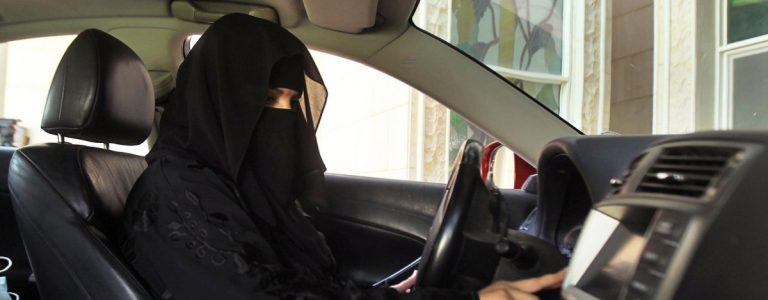
With news last week that the Kingdom of Saudi Arabia – after decades of activism and argument – was now allowing women to drive, one university is stepping up to the mark to make sure the country’s fledgling drivers are safe on the roads.
According to Arab News, Princess Nourah Bin Abdulrahman University announced on Saturday that they are ready to establish a driving school for women in cooperation with the relevant authorities.
The university made the announcement on their Twitter account, adding that their decision comes in line with the Royal directive to allow women to drive equally with their male peers in the Kingdom.
تستعد #جامعة_الأميرة_نورة لإنشاء مدرسة لتعليم القيادة بالتعاون مع الجهات المختصة.#pnu https://t.co/ykbS223hgQ
— جامعة الأميرة نورة (@_PNU_KSA) September 30, 2017
King Salman issued the royal decree last Tuesday, ordering an end by next year of the ban on women drivers, a conservative tradition that has limited women’s mobility and been seen by rights activists as an emblem of their suppression.
Saudi Arabia is the only country in the world that bans women from driving.
The king ordered a ministerial committee to report within 30 days on how to implement the new policy by June 24, 2018.
Saudi Arabian women rejoiced at their new freedom to drive on Wednesday, with some taking to the roads even though licences will not be issued for nine months.
“Saudi Arabia will never be the same again. The rain begins with a single drop,” Manal al-Sharif, who was arrested in 2011 after a driving protest, said in an online statement.
“Women’s rights activists will still continue to observe how this law is implemented and monitored and will continue campaigning to abolish the male guardianship imposed on them,” she said, as reported by ABC.
“We ask for nothing short of full equality for women… It’s just the start to end long-standing unjust laws have always considered Saudi women minors.”
#Women2Drive done#IamMyOwnGuardian in progress
— منال مسعود الشريف (@manal_alsharif) September 26, 2017
Ministers believe adding women drivers to the roads will reduce the number car crashes and improve road safety.
“Women driving cars will transform traffic safety into a pedagogical practice which will reduce human and economic losses caused by accidents,” said Interior Minister Prince Abdulaziz bin Saud bin Nayef, on the ministry’s official Twitter page.
Around 20 Saudis die each day in traffic accidents in part due to poor governance. The government is aiming to reduce the number of deaths by a quarter as part of its ambitious Vision 2030 reform programme.
While many Saudis welcomed Tuesday’s announcement, others expressed opposition online or in quiet conversations after decades of support for the policy by prominent clerics.
Saudi authorities pursue Twitter user over women’s driving threat https://t.co/kDWXZ8DpKI pic.twitter.com/VuJFioNeGn
— Reuters Top News (@Reuters) September 30, 2017
In a country where gender segregation has been enforced for decades, the decree means women will have regular contact with unrelated men, such as fellow drivers and traffic police. With such conservative traditions, it may actually take years rather than months for women to become a major presence on the roads in some areas.
Additional reporting from Reuters
Liked this? Then you’ll love this…
Studies highlight gender, racial inequalities in medical profession
This new scholarship aims to reduce the STEM gender gap in Taiwan and South Korea







